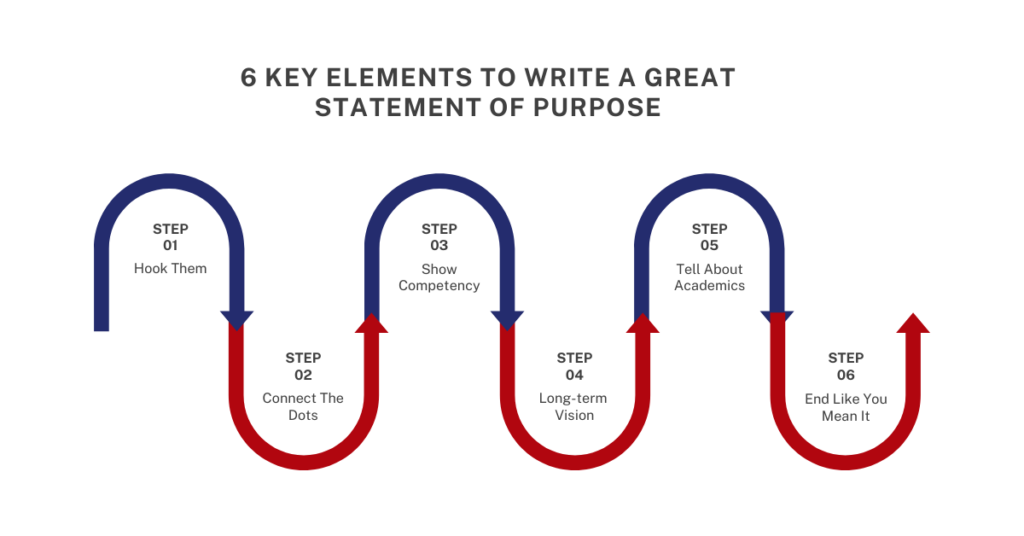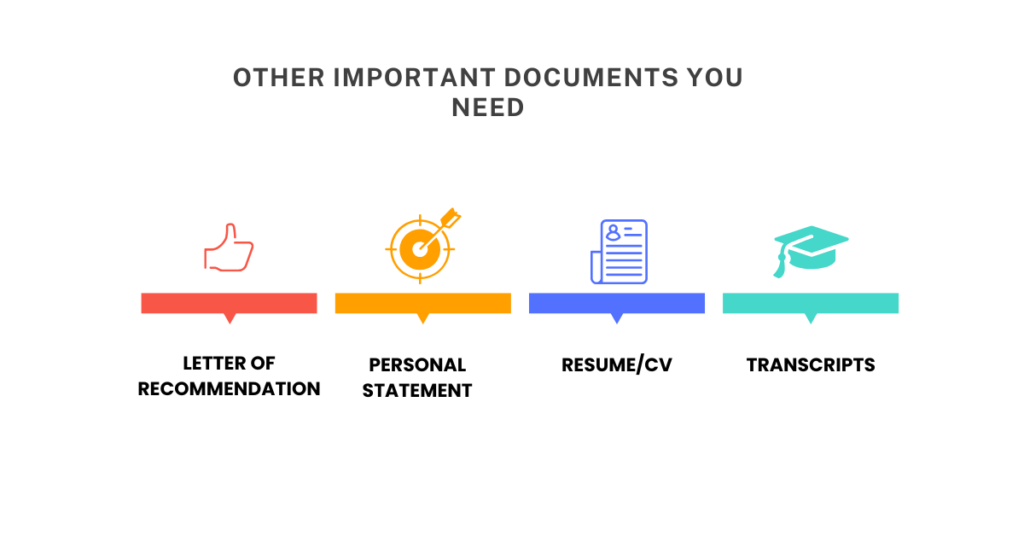2 May 2025
9 minutes read
How To Write A Statement Of Purpose For Masters In Management Information Systems: Tips + Samples

Key Takeaways
- A strong statement of purpose for masters in management information systems should reflect your goals, passion, and field understanding.
- The MIS market is projected to reach $155.5 billion by 2030, making it a valuable career path.
- Tailor your SOP to highlight your experiences, problem-solving skills, and vision for using technology to drive business growth.
73% of employers say they want ‘analytical thinkers’—but guess what? Most resumes scream ‘copy-paste enthusiast.’
Our experts have seen that when you write an SOP, especially for MS in Management Information Systems in USA, it feels like decoding a corrupted database—frustrating, redundant, and borderline existential. You want to sound smart, but not robotic. Honest, but not too casual. Strategic, but not like you’re pitching a startup on Shark Tank. And then there’s the pressure: Will this 500-word essay hold the decision-making ability for my future?
Here’s what we advise—ditch the fluff. Focus on clarity, relevance, and your actual career goals. A killer SOP isn’t a brag sheet. It’s a well-structured case for why you + MIS = solid investment. Let’s build that case.
What Is Masters In Management Information Systems (MS In MIS) All About?
Every 2 days, we create as much data as we did from the dawn of civilization to 2003. Now ask yourself—who the hell is managing it?
The MS in Management Information Systems (MS in MIS) isn’t just a degree—it’s your pass into the cockpit of the modern digital economy. With the MIS program market expected to hit $140 billion by 2027, this isn’t a trend. It’s survival. Businesses need brains that can blend analytics, project planning & management, and information security—not just code. So if your career objectives go beyond pushing buttons and into building systems, it’s time to pursue an MS that actually makes sense.
What it truly teaches you:
- Equips you with real-world skills in data analysis, database management, and enterprise system management
- Merges tech with business through project planning & management, analytics, and information security
- Opens doors to high-paying roles like analyst, IT strategist, and consultancy expert across industries
- Trains you to make high-impact decision-making choices using smart technology systems
- Offers long-term ROI with global demand for MIS program graduates skyrocketing in fintech, healthcare, and e-commerce
- Bridges academic and professional skills to future-proof your career in an AI-powered economy
- Gives access to leadership roles in information technology departments shaping business transformation
6 Key Elements To Write A Great Statement Of Purpose
Your Statement of Purpose is not a sad LinkedIn post wrapped in academic jargon – it doesn’t have to be like that. It’s a pitch. And most people ruin it.

Most SOPs read like a Wikipedia page of someone trying too hard. I say if your statement of purpose doesn’t scream clarity, relevance, and intent, no one’s reading past paragraph two. Whether it’s an SOP for MS in MIS, computer science, or project planning & management, your words have to prove that you’re not just another applicant who googled a “sample SOP for master” or “SOP for MIS” and hit copy-paste. You’re here to build systems, make decisions, and lead in information technology. So why don’t we make sure your SOP says that?
1. Start with a Hook That’s 100% You
Don’t open with “Since childhood…” That’s not a hook—it’s a lullaby. Start with a moment that triggered your interest in information system, data analysis, or information security. Your intro should punch through the noise and set the tone. A strong opening is what sets winning sop samples apart from the ones that land in digital oblivion.
2. Connect the Dots Between Passion and Action
Passion isn’t what you feel—it’s what you did. Show how your undergraduate work in computer science or database management led to tangible results. Highlight professional experience or internships that shaped your mindset. That’s what separates a thinker from an analyst. Your SOP for management information systems must tell a story of action, not just ambition.
3. Show That You Understand the Field
Saying “I want to pursue ms in information systems” isn’t enough. Break down why the MIS degree matters in the real world—mention its role in solving modern business problems. Bring in analytics, system administration, project planning & management, or consultancy examples to prove you’re not writing blind. This shows you’re not recycling a generic sop for mis, but writing with informed intent.
4. Make It About the Future—Not a Resume Recap
SOPs aren’t a place to regurgitate your resume. Use this space to align your academic and professional journey with your career objectives. Where does this MIS program take you? Show decision-making. Show vision. Prove that your sop for masters has purpose. The committee wants to know what you’ll do after the degree, not what you’ve already done.
5. Talk About the School Without Sounding Desperate
Don’t write, “I believe XYZ University is the best.” Everyone says that. Instead, show how the curriculum fits your goals in information technology, management information systems, and beyond. Reference specific labs, faculty, or courses if needed—but keep it real. Tailoring your SOP for management information systems shows effort, and effort gets noticed.
6. End Like You Mean It
Your conclusion isn’t a wrap-up—it’s your mic drop. Make it bold. Make it focused. Don’t write it for the sake of SOP writing. Reaffirm your intent to pursue an MS, not just because you “want to learn,” but because you have the drive, data, and clarity to lead in this field. A weak ending kills momentum—don’t let your mis sop fade out like elevator music.
10 Top Universities For MIS In The World To Study
The global market for MIS professionals is projected to reach $155.5 billion by 2030—and universities know it. There’s a reason the demand for MIS is exploding: every company, from Tesla to your local grocery chain, needs people who can fix information system defects, build digital systems, and transmit information smartly across business layers.

And If you really want to pursue a Masters of Science in the field of management information systems, this isn’t just about getting a degree. Not even a bit. It’s about positioning yourself at the centre of the power of information. But not all schools are created equal. Some cultivate chief information officers. Others churn out average grads. Choose wisely.
We have compiled a list of 10 top universities for MIS based on real numbers, experts’ opinions, and students studying in them:
| University | Avg. Tuition Fees (Per Year) | Avg. Salary After Graduation | SOP Expectations |
|---|---|---|---|
| Carnegie Mellon University | $53,000 | $112,000 | – Must tailor your SOP to the field of MIS – Highlight project management and leadership skills – Show intent to become a digital systems expert |
| University of California, Berkeley | $45,000 | $108,000 | – Include specific professional SOP goals – Mention cloud and data engineering interests – Show depth in science in information systems |
| Massachusetts Institute of Technology (MIT) | $57,590 | $120,000 | – Detail career path as an information analyst – Reflect on information systems administration goals – Show passion for solving information system defects |
| University of Texas at Austin | $38,000 | $97,000 | – Focus on your degree in MIS aspirations – Use a clear sample SOP for MIS structure – Include any university clubs like Infotechs |
| New York University (NYU) | $49,000 | $103,000 | – Emphasize real professional experience – Write an effective SOP with clear goals – Highlight masters in information career intent |
| Indiana University Bloomington (Kelley) | $37,000 | $95,000 | – Use a sample statement of purpose as a base, but enhance your SOP – Showcase impact in data security management – Show understanding of the management system cycle |
| University of Arizona (Eller) | $34,000 | $91,000 | – Make your SOP reflect your purpose to pursue MS in MIS – Mention interest in fixing called information errors – Include degree in information technology from Amity University (if relevant) |
| University of Washington | $42,000 | $99,000 | – Clearly state why you pursue a master’s of science – Demonstrate understanding of the field of information – Talk about information systems offered at the school |
| Georgia Institute of Technology | $31,000 | $93,000 | – Highlight your project management and leadership skills – Write an SOP for MS that bridges tech with business – Showcase results from information management systems work |
| University of Illinois Urbana-Champaign | $30,500 | $92,000 | – Use a well-crafted SOP structure with measurable outcomes – Link academic work with masters in management goals – Be clear on your intent to pursue a master in management information systems |
2 Sample SOP For MS In Management Information Systems That Works For Everyone
Now, this section is the reason why you’re here—because that’s what matters. Checking out the best SOPs that actually worked, the formats universities love, and the kind of tone that doesn’t sound like you begged Chatgpt at the last minute.
A great SOP for ms in information systems management isn’t just about grammar and buzzwords. It’s about clarity, structure, and purpose. The goal? To make the admissions team say, “Yep, this one’s got it.” Whether you’re coming from computer science, project administration, or the field of MIS, these sample SOPs for MIS are built to work—for everyone, in every scenario.
Here’s what our SOP writers have done that has worked for many:
1. SOP for Applicants With an Undergraduate Degree in Computer Science, Aiming to Pursue a Master’s in Management Information Systems
Ever since I started my undergraduate journey in computer science, I’ve been fascinated by how technology shapes decision-making processes in businesses. I learned early on that being a systems analyst is not just about coding—it’s about understanding how to optimize database administration systems and improve overall system efficiency. This realization led me to seek a master’s program in management information systems, where I can blend my technical skills with business strategy.
My experience working on various projects, from data analysis to system design, has given me hands-on exposure to how crucial information systems are for making informed decisions. Whether it was during my internship where I improved a company’s information management systems or the coursework where I analyzed the impact of technology on decision-making, every project reinforced my passion for the intersection of business and technology.
Pursuing a master’s in information systems feels like the natural next step for me. It will equip me with the tools I need to design and manage complex systems that not only support business operations but also drive innovation. This master’s in management information systems will allow me to work on larger-scale projects, dealing with complex data sets and understanding business dynamics, thereby enabling me to contribute significantly as a systems analyst.
I am confident that a Master of Science in Information from this esteemed university will prepare me to make meaningful contributions in the field of information systems management. With this degree, I look forward to leading data-driven strategies that will empower businesses to thrive in the ever-evolving tech landscape.
SOP for Career Changers Looking to Transition into MIS
After years of working in various roles within project development and management and business analysis, I realized that my true passion lies in the strategic use of technology to solve business challenges. This led me to develop a keen interest in management information systems, where I could apply my existing skills while gaining a deeper understanding of information systems management. I’ve seen firsthand how well-designed information management systems can transform an organization’s efficiency, and now I want to dive deeper into how businesses can use technology to drive growth.
Through my career, I’ve developed strong problem-solving abilities and the ability to analyze data to guide decision-making processes. However, I noticed that the businesses I worked with often lacked a cohesive strategy for leveraging technology effectively. This realization pushed me to pursue a Master’s in Information Systems to gain both the technical expertise and the business acumen needed to drive digital transformation within organizations. I believe that a Master’s in Management Information Systems is the perfect platform for me to bridge this gap.
I am excited to transition into a systems analyst role, where I can utilize my background in project management and business strategy, combined with the technical knowledge I will gain from this program, to create innovative solutions. This Masters degree in Information will provide the perfect foundation for me to lead organizations in managing their digital systems and utilizing data more effectively. I am eager to contribute to the growth and success of businesses, leveraging technology to solve complex challenges.
Conclusion
In the end, your Statement of Purpose should feel like a clear, honest reflection of who you are, why you’re choosing this path, and how you plan to leverage your knowledge for the future. You’re someone who truly understands the power of information systems and the impact they have on business success. Be real, be purposeful, and make sure your SOP aligns with your goals. The degree will give you the tools, but your drive and vision will define your success.
Most applicants struggle to write a perfect statement of purpose but end up sounding arrogant — but you won’t. At Ambitio, our AI-powered study abroad experts help you craft a powerful, standout statement of purpose that gets noticed. No fluff, no clichés—just a compelling story that proves you belong. Schedule a call with Ambitio’s experts.
FAQs
What is the purpose of an SOP for MS in MIS?
The SOP explains your motivation for pursuing MIS, highlights your relevant skills and experiences, and outlines your career goals, showing the admissions committee why you are a good fit for the program
What should I include in my SOP for MIS?
Include your academic and professional background, reasons for choosing MIS, specific interests in the program or university, relevant technical skills, and your short-term and long-term career aspirations
How should I start my SOP for MIS?
Begin with a compelling introduction that explains your motivation for choosing MIS and how it addresses current technological and organizational challenges
Can I mention specific software skills in my SOP?
Yes, highlighting your proficiency in programming languages, data analytics, database management, or other MIS-related tools strengthens your application
Should I customize my SOP for each university?
Yes, tailor your SOP to reflect the unique features of each university’s MIS program and how they align with your goals
What tone and language should I use in my SOP?
Use clear, concise, and straightforward language, avoiding jargon and overly long sentences to maintain readability
Is it okay to use an SOP sample as a template?
You can use samples for guidance but avoid copying them directly to prevent plagiarism. Write your SOP in your own words

You can study at top universities worldwide!
Get expert tips and tricks to get into top universities with a free expert session.
Book Your Free 30-Minute Session Now! Book a call now




























